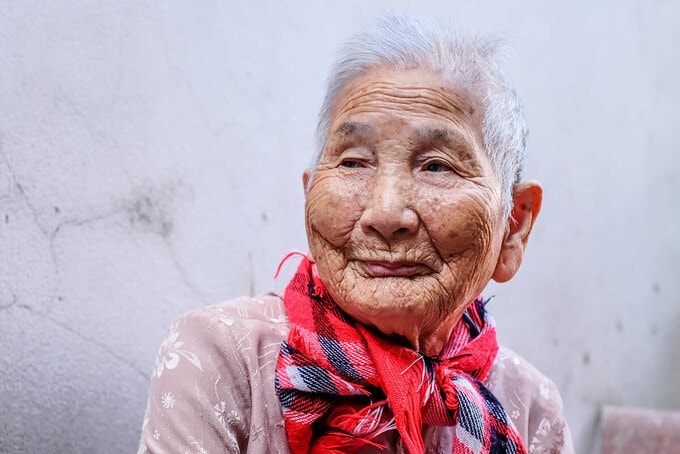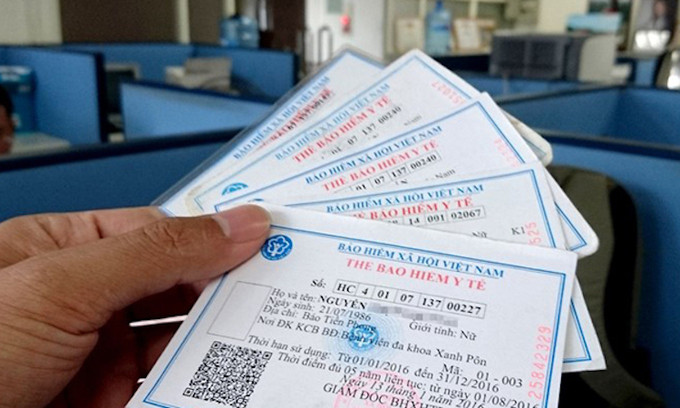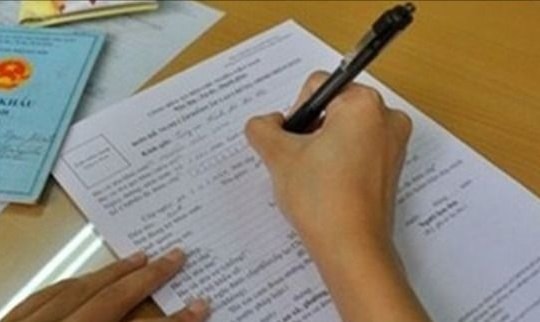Outstanding policies effective from July 1
Authorities will not issue new or reissue household registration books or temporary residence books; the standard social assistance level will increase from VND270,000 to VND360,000, starting from July 1.
No new household registration book issued
The amended Law on Residence takes effect from today. According to Circular 55 of the Ministry of Public Security, when citizens register for permanent residence, adjust information in the Database on residence, separate households, delete permanent residence registration, register for temporary residence, extend temporary residence, delete temporary residence registration leading to changes in information in thehousehold registration book, temporary residence book, the residence registration agency is responsible for withdrawing the issued book.
This agency will adjust and update information in the Residence Database according to the provisions of the Residence Law and will not issue new or reissue household registration books or temporary residence books. Thus, those who do not complete the above procedures will not have their household registration books revoked. These books will still be used normally until the end of 2022.
To serve the new form of population management, from today, two projects, the National Population Database and the Production, Issuance and Management of Citizen Identification Cards, will begin operation. These are the two largest information technology projects ever in Vietnam, deployed from the central agency to 63 provinces and cities; more than 700 districts, towns, cities and nearly 11,000 communes, wards and towns nationwide.
An important change in the revised Law on Residence is that the conditions for permanent residence registration will now be the same in all provinces and cities. Previously, the 2006 Law on Residence had separate regulations on conditions for permanent residence registration in provinces, centrally run cities and in the inner city of Hanoi.
 |
| From July 1, the authorities will adjust and update information in the Residence Database according to the provisions of the Law on Residence and will not issue new or reissue Household Registration Books or Temporary Residence Books. Photo: Xuan Hoa |
Vietnamese heroic mother allowance is 3 times the standard level
The Ordinance on preferential treatment for people with meritorious services took effect from July 1, replacing the 2005 Ordinance, stipulating the monthly allowance for heroic Vietnamese mothers at three times the standard level.
The standard level for determining subsidies and preferential allowances for people with revolutionary contributions is 1,624,000 VND. According to previous regulations, Vietnamese heroic mothers are entitled to receive pensions based on the number of children who are martyrs plus allowances. If a mother has one child who is a martyr, she is entitled to receive 1,624,000 VND plus an allowance of 1,361,000 VND; if a mother has two children who are martyrs, she is entitled to a pension of 3,248,000 (1,624,000x2) plus allowances.
However, the new Ordinance does not stipulate a pension based on the number of children of martyrs, but Vietnamese heroic mothers will receive a monthly allowance equal to three times the standard level (1,624,000 x 3 = 4,872,000 VND) plus allowances. Thus, each Vietnamese heroic mother will receive 6,233,000 VND per month.
The leader of the Ministry of Labor, War Invalids and Social Affairs said that with the increase in the subsidy level, along with the support of society, Vietnamese heroic mothers will have a better life without depending on the number of children of martyrs. The Decree maintains other preferential regulations for Vietnamese heroic mothers such as the allowance for caregivers (for mothers living with their families); annual health rehabilitation care...
 |
| Heroic Vietnamese Mother Le Thi Chi. Photo: Nguyen Dong |
Increase social assistance standards
According to Decree 20, the standard levelsocial assistanceThe social assistance standard applied from July 1 is 360,000 VND/month, an increase of 90,000 VND compared to Decree 136/2013. The social assistance standard is the basis for determining the social assistance level, the level of financial support for receiving care and nurturing; the level of nurturing allowance in social assistance facilities and other social assistance levels.
Accordingly, orphans under 4 years old and HIV-infected children from poor households are entitled to a subsidy of 900,000 VND per month (instead of 675,000 VND). People from 60 to 80 years old from poor households without caregivers are entitled to a subsidy of 540,000 VND per month (instead of 405,000 VND). People with severe disabilities are entitled to a subsidy of 720,000 VND per month (instead of 540,000 VND). People with severe disabilities are entitled to a subsidy of 540,000 VND per month (instead of 405,000 VND)...
Decree 20 also stipulates policies on regular social assistance in the community; emergency social assistance; care and nurturing of social protection beneficiaries at social assistance facilities and social housing. There are 6 forms of emergency assistance, including: providing food and essential necessities from the state budget; paying for the treatment of seriously injured people; supporting funeral costs; supporting housing construction and repair; emergency assistance for children when their parents die or go missing due to natural disasters, fires, epidemics or other force majeure reasons; creating jobs and developing production.
 |
| Health insurance card. Photo:PV |
More subjects are granted free health insurance
Decree 20 adds many social protection beneficiaries to receive monthly social allowances and cards.Free health insurance. The first subject is a person in a near-poor household who is single or has no husband or wife; has a husband or wife but is dead or missing according to the law and is raising a child under 16 years old or is raising a child from 16 to 22 years old and that child is studying culture, vocational training, professional secondary school, college, or university with a first degree.
Second, people aged 75 to 80 years old, poor households, near-poor households living in communes and villages of ethnic minorities and mountainous areas with special difficulties are provided with free health insurance.
Third are children under 3 years old from poor households, near-poor households living in communes and villages of ethnic minorities and mountainous areas with special difficulties; people infected with HIV/AIDS from poor households without a stable monthly income such as salary, wages, pension, social insurance benefits, monthly social benefits.
HIV positive results must be disclosed to cohabiting partners such as husband and wife.
The revised Law on Prevention and Control of Human Immunodeficiency Virus (HIV/AIDS) takes effect from July 1. The law stipulates that HIV-infected people are obliged to promptly notify their positive HIV test results to their spouses, prospective spouses, and cohabitants.
The Law adds groups that are given priority access to information, education, and communication on HIV/AIDS prevention and control, including transgender people; prisoners, detainees, inmates of compulsory education facilities, students of reform schools, students of drug rehabilitation facilities; ethnic minorities; people living in mountainous areas, remote areas, islands, border areas, areas with especially difficult socio-economic conditions; people from 13 years old to under 30 years old.

.jpg)

